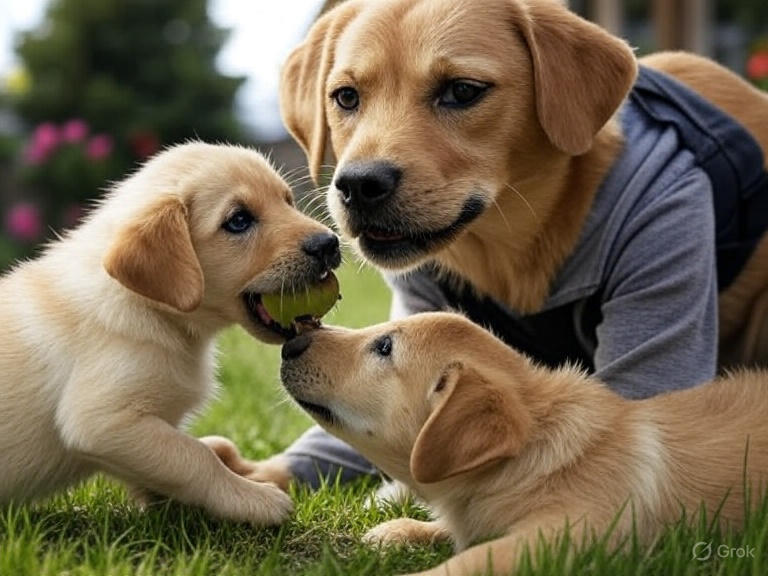
Puppies are curious, energetic, and still learning the rules of their new world. While their antics can be adorable, destructive puppy behaviors like chewing, digging, or tearing things apart can quickly become frustrating. Fortunately, most of these behaviors are normal and can be managed with the right approach. This guide will help you understand why puppies act out and how to redirect their energy without punishment.
Why Do Puppies Exhibit Destructive Behavior?
Puppies don’t misbehave out of spite. Destructive actions usually stem from:
- Teething discomfort
- Boredom or excess energy
- Lack of training
- Separation anxiety
- Exploration through chewing and digging
Understanding the root cause of the behavior is the first step to resolving it effectively.
Chewing on Furniture, Shoes, or Everything in Sight
Chewing is a natural part of the teething phase, which usually peaks between 3 to 6 months of age. To manage it:
- Provide safe chew toys specifically made for teething puppies.
- Use deterrent sprays on furniture or cords to make them less appealing.
- Redirect the chewing—when your puppy starts chewing something off-limits, calmly replace it with a toy.
Avoid yelling or physical punishment. Instead, reward your puppy when they choose the correct item to chew.
Digging Up the Yard
Digging is a common behavior, especially in breeds with high prey drive or those bred to dig. To manage this:
- Offer a designated digging area, like a sandbox filled with toys.
- Give them more mental stimulation, as boredom often triggers digging.
- Limit unsupervised outdoor time and redirect their energy with games like fetch.
Stealing and Destroying Items
Puppies are naturally curious and often steal objects that smell like you—socks, shoes, or remote controls. Here’s how to stop it:
- Keep tempting items out of reach.
- Teach “leave it” and “drop it” commands.
- Trade stolen items for treats or toys instead of chasing them, which can feel like a game.
Excessive Barking, Whining, or Scratching
These behaviors may indicate stress, boredom, or a lack of training. To help:
- Create a calm, structured routine with regular play, rest, and training times.
- Use puzzle toys and treat-dispensing games to keep their mind occupied.
- Ignore attention-seeking noise and reward quiet behavior.
Separation Anxiety
If your puppy becomes destructive when left alone, they may be suffering from separation anxiety. Signs include:
- Chewing doors or crates
- Barking or whining when you leave
- Potty accidents despite being trained
To address it:
- Start with short absences and gradually increase alone time.
- Avoid dramatic goodbyes or greetings.
- Use a comfort item, like a piece of your worn clothing or a heartbeat toy.
If anxiety continues, consult a vet or a professional dog trainer for behavior therapy.
Exercise and Mental Stimulation Are Key
A tired puppy is a well-behaved puppy. Make sure your dog gets:
- At least two daily walks or play sessions
- Training sessions to challenge their brain
- Interactive toys like Kong, snuffle mats, or puzzle feeders
Mental and physical activity can significantly reduce unwanted behaviors.
Be Consistent and Patient
Puppy training takes time. Be consistent with commands, rewards, and consequences (like removing attention when bad behavior happens). Don’t change your approach too often, and celebrate small wins along the way.
Final Thoughts
Dealing with destructive puppy behaviors doesn’t have to be overwhelming. By understanding your puppy’s needs and guiding them with gentle discipline and structure, you can transform chaos into calm. Remember: they’re not being “bad”—they’re just learning. With patience and love, you’ll help your puppy grow into a well-mannered, happy dog.
